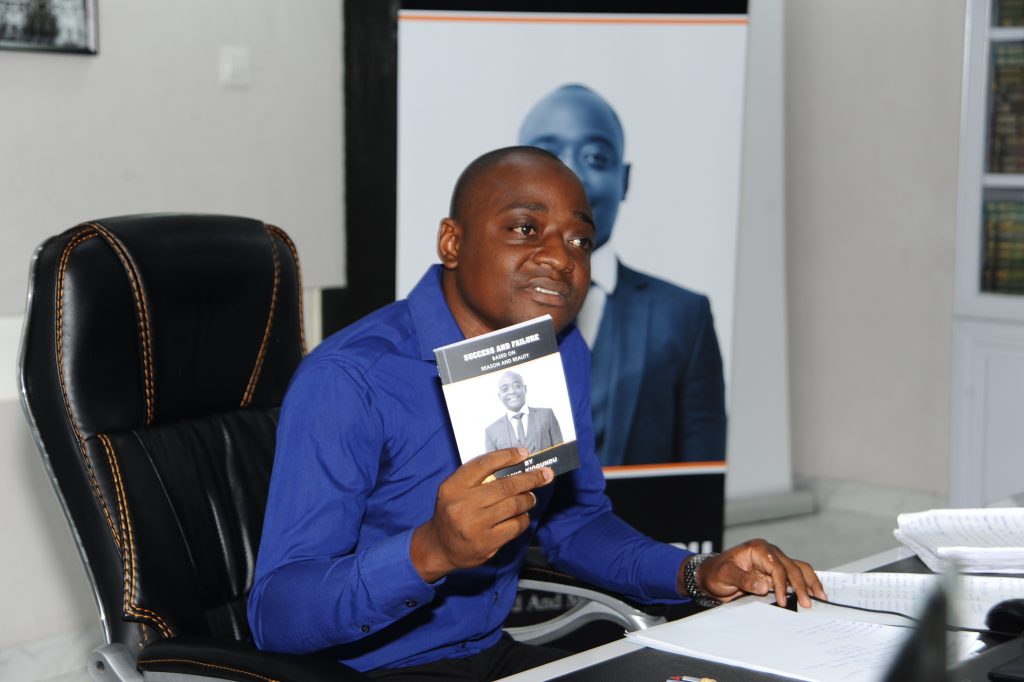
Youthful tycoon Hamis Kiggundu has penned a book titled Success and Failure (Based on Reason and Reality). In the book, Kiggundu shares nuggets of wisdom on how one can achieve success. Unlike your everyday motivational speaker who has nothing to their name, Kiggundu’s is a book to read because he has walked the talk.
“This book is not about me. I don’t feel that special that others should read about me. It is a gift to my fellow country men and country women so that they can start thinking progressively about success. Individual success and success of our country at large,” he said at the book launch at his offices in downtown Kampala on Monday.
“The majority of Ugandans especially the youth don’t believe in themselves. They have a dependency syndrome They look at becoming successful as a miracle. If I can it, so can they,” he said.
The 34-year-old Kiggundu who owns prime real estate properties in Kampala laughed off those who think he is just a front for big politicians.
“Most people have attributed my success to government and politicians, which is completely wrong. I look at that as a weak element whereby someone is trying to justify his poor status and gain comfort in being a failure. I urge my fellow Ugandans that it is possible and yes, we can do it. All of us can be successful,” he said.
“I have written this book is because it is useless if you have knowledge to help others achieve success and you don’t share.”
“This book has got 16 chapters based on my personal experience. This is my personal opinion. It may be a fact or not a fact, depending on the reasoning capacity of the reader,” he said.
Kiggundu urged Ugandans to read his book saying that few Ugandans have authored books. People rely on books with foreign knowledge yet our country has got different prevailing circumstances.
“I have attained my wealth in Uganda, so I know what it takes to become successful in Uganda,” he said.
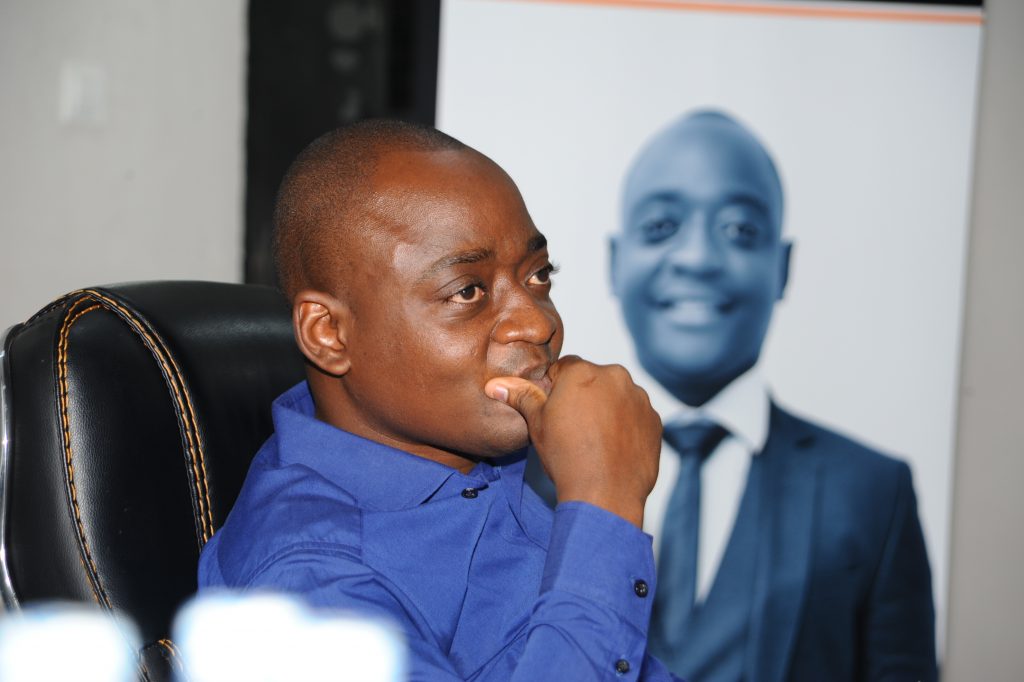
What is success
“Success is fulfilment of an obligation with no due regard to emotions or desires, based on specifically reason and reality. That is looking at things from a realistic perspective as you see them, rather than working on presumptions,” he said.
He advised Ugandans to read his book and get ideas on how to make it, instead of claiming he doesn’t own what he owns. “People hate successful people passionately and I don’t know why. Actually, you can’t achieve something you hate that much,” he said.
“I started working when I was 19 years when I was at university. I’m now 34, meaning I have been working for 15 years of doing the right thing,” he narrated his journey admitting that he got “reasonable capital” from his father to start his empire.
“I fell many times, but I never went back to him for more,” he revealed.
“My advice to Ugandans is that let us start believing in ourselves, and let us start thinking progressively towards success, instead of fighting people that have come up to develop our country.”
Kiggundu defined primary success to growing up into a man or woman, attaining an education certificate, getting married and starting a family, which anyone can attain. His focus therefore was on bigger success – attaining riches and wealth.
“So many Ugandans are stuck. They don’t know where to start. You tell them its capital, they will still ask you, where do we get the capital. When they look at me, they will say Ham’s father was rich. When you look at the family tree of my success, you will find that my father was born deep in Lukebere, he managed to move from there to a bigger town called Kalungu then to Masaka and finally to Kampala. Most of you have been born here in Kampala. My father didn’t have the education that he has given me,” he said.
Kiggundu revealed that part of his driving force was a challenge to be better than his father because he was born under better circumstances.
“That is why I have gone as far as trading in the states. I have got a very huge building in Manchester trading as Ham International UK Ltd. The sky is the limit,” he said.
Kiggundu says that the brain is the most important resource. “It is your responsibility to exploit and explore that brain to start thinking progressively towards success not failure. There is a big difference between having knowledge and being wise. I have realised that most Ugandans are knowledgeable about the basic factors in life. He knows the richest country, the most expensive cars … A wise person is he who can apply that little knowledge he has productively towards success,” he said.
On failure and poverty
“Ugandans are inconsistent, they are impatient. All these are factors of failure that are explained in this book,” Kiggundu said.
“I have defined poverty in my personal opinion as a state where someone has nothing, little or not enough yet. A permanent state of poverty equals to failure. But failure is in most cases 95% attached to the brain. The inability to think progressively towards success.”
“Poverty is a temporary state. We have all come out of poverty. My father wasn’t rich like most claim. We have all been there. You can be poor by birth but the moment you grow up the decision is your to either become successful or stay poor. Someone can be poor by belonging. Whereby the prevailing circumstances are not enough to facilitate your development … economic, political and social factors are not welcoming for you to get out of poverty. It is a temporary state like I’m a rich person today but I can drop from riches to rags if I stop attaching reason to whatever I do,” he said.
“I have written this book to pass information and knowledge to my fellow Ugandans to start thinking progressively towards success,” he said.
“When we cross borders, we are judged by our countries of origin not our individual status. Despite the fact that I employ whites in the UK, they will still disrespect me due to my origin. Let all the rich people work towards development of our country rather than individual development.”
Employment should be temporary
Kiggundu also advises people to think beyond employment. “Salaries are limited to survival because they always equal to expenses. Even if I promoted you to a manager and doubled your salary from Shs1m to Shs2m, I would expect you to live up to your new status. You would have to move to a better neighbourhood, buy a car if you didn’t have one,” he said.
“Employment should be temporary to accumulate enough income to move into private business. Prices of things go up everyday but salaries don’t go up. A person should have a plan to get out employment. When you stay so long in employment, you get a dependency syndrome whereby your job becomes your father and your mother. By the age of 35, someone should have started his own business, towards success not merely survival. We desire to live to survive. You can comfortably live on beans and you won’t die, but it wouldn’t hurt to feed on meat too.”
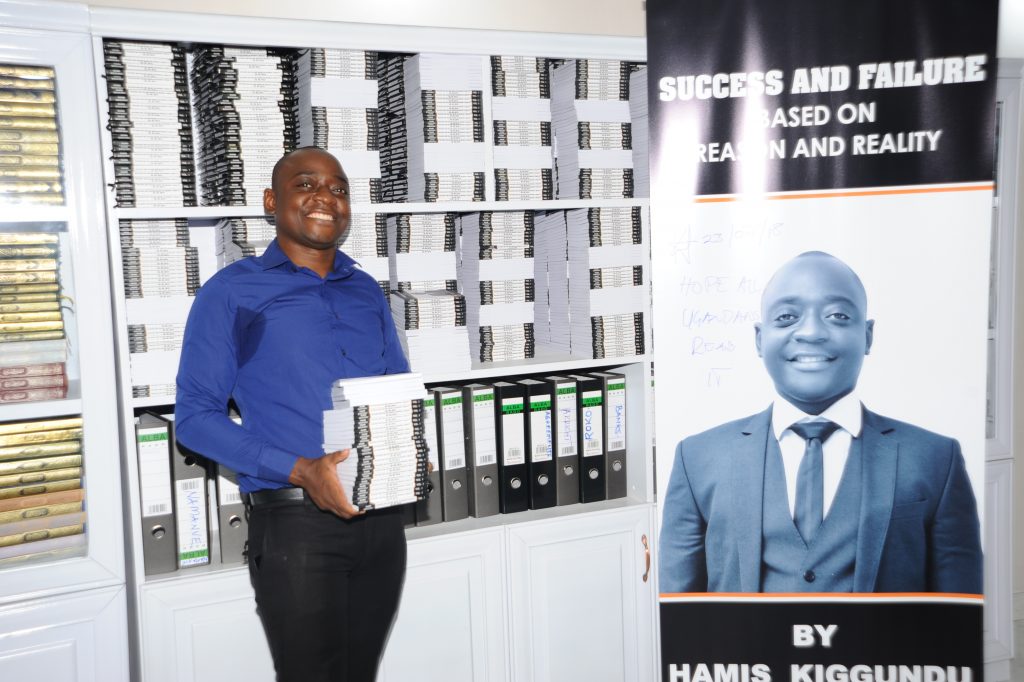
Being poor, rich and wealthy
Kiggundu also delved into what he thinks is the difference between being poor, rich and wealthy.
“I can comfortably tell you at this point that I’m a rich man but I’m working towards being a wealthy man. A rich person is someone with a lot valuable possessions and assets just like I do, but we equally have a lot of liabilities. A wealthy person is one who has got all that I have but with no liability at all. If a rich person can remove liabilities from his assets, then he becomes a wealthy person.”
“Riches can be measured from the amount of assets you own, wealth is measured from time. How long can you survive without working? That’s the difference. Rich people create jobs, wealthy people create systems. Wealthy people deposit money in banks as fixed deposits for the rich to borrow and start business. Actually, to some extent the rich work for the wealthy, just like on the other side of the coin, poor people in large numbers because they are afraid to take risks save their money in banks in small quantities and the rich person borrows it in collective amounts to start employing them. Rich people in most cases use poor people’s money to start investment because they look at it as capital, well as the poor people look at it as savings,” he said.
“I’m look at becoming wealthy though at the moment I can comfortably say I am a rich man,” he said.
Kiggundu revealed that he is going to give away most of his books free of charge for people to gain knowledge. They will also be available in book stores around town and the proceeds will go to charity.
The post Young tycoon Hamis Kiggundu authors book showing Ugandans how to succeed appeared first on Matooke Republic.
via: Matooke Republic
More
411 UG brings you all the latest News and Ugandan Music. Browse Featured News, Entertainment, Current Affairs, Technology, Interviews, Relationships and much more.











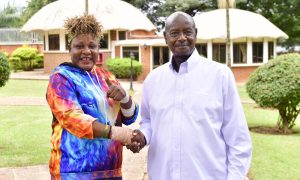





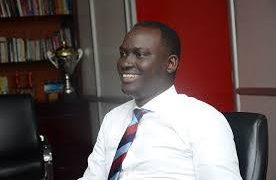












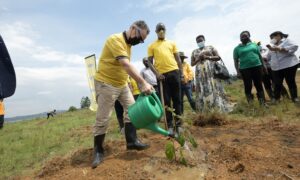









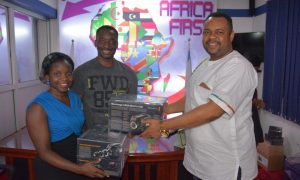






Share this post: